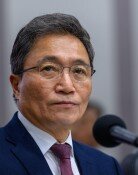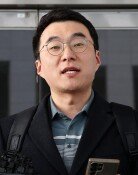Civic Heroes Face Poor Treatment, Vague Confirmation Process
Civic Heroes Face Poor Treatment, Vague Confirmation Process
Posted September. 15, 2005 08:31,
On July 1 2001, a high school student, A, drowned to death with his friend B while rescuing B who fell in the water during a bible school outing held in Hoengseong-gun, Gangwon Province.
As parents requested A to be approved as a hero. However, the Judging Committee for those who died or were injured while saving others under the Ministry of Health and Welfare (MOHW) didnt acknowledge A as a hero because it could not confirm that A actively tried to rescue B.
But As parents won a lawsuit after they filed for administrative litigation. Only three years after A died, A was recognized as a hero.
The system for approving a hero is now being blamed by bereaved families and others for its dubious selection standards and insufficient rewards. The vicious circle is continuing in which most of those who werent approved to be heroes were later approved as one through lawsuits.
Vague Standard for Selection-
The Law on Honorable Treatment of those who died or were injured while saving others, established in 1996, defines a hero as one who died while saving others or saving property even if it was not his or her duty.
However, the law leaves huge possibilities for potential different outcomes of similar cases under an examiner judge, as it fails to clearly stipulate the scope of duty and others the degree of help required.
It is not clear in the eyes of the law whether the act of a beautiful railroad man Kim Haeng-gyun, who lost both legs while rescuing a child on a railroad track, was one of duty, or whether a comrade of Chun Jae-gyu was just a stranger. Chun Jae-gyu, a member of the Korean Antarctic Research Program (KARP) died when a boat he was on capsized after he set out to rescue his comrade at Sejong Antarctic Station.
Kim was approved as one who got injured while helping others, and Chun was approved as a hero as well, but a third of the applicants who wish to be approved as those who died or were injured while saving others between 2002 and 2004 werent recognized on the grounds that their aid was part of their job. During that period, only half (71) of all applicants (142) were approved as those who died or were injured while saving others.
However, out of the 21 administration appeal litigations against the MOHW during the same period, the MOHW has only won one lawsuit. It was also reported that the MOHW has lost most of the eight cases in litigation at a district court.
One examiner of the Judging Committee for those who died or were injured while saving others said, The Committee needs to further specify the selection standard for those who died or injured while saving others.
Insufficient Rewards-
The law has been steadily supplemented to the extent that a person who dies while saving others can receive 170 million won in compensation starting this year. The sum was just five to six million won until 1990. In addition, the government has prepared a revised bill concerning the operation of national cemeteries in order to make a person who died while saving others eligible for burial in a national cemetery last September.
There has been significant progress in honorable treatment for those who died or were injured while saving others, but some point out it still leaves much to be desired. The bereaved family of a person who died is awarded its educational costs up until high school. When a bereaved family member studies at a university, which puts the greatest financial burden on a family, they dont qualify for any benefits.
In addition, the MOHW noted that the law requires city, county and district governments help a person who injured while saving others or the bereaved family of the person who died while helping others find a job.
Regarding the matter, another examiner of the Committee remarked, The government should consider paying the education fees for those people and giving them extra credit on employment examination, just like it does for the children of patriots.
Jae-Myoung Lee egija@donga.com







